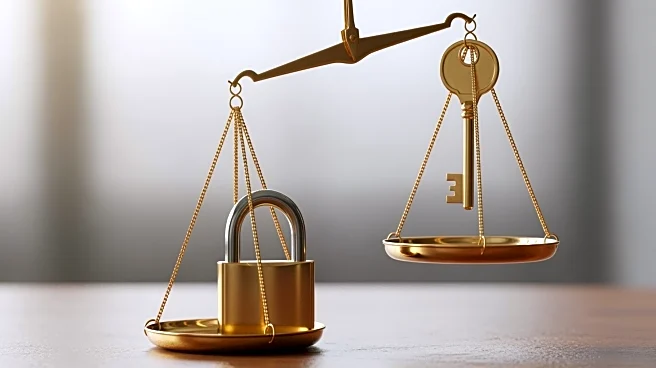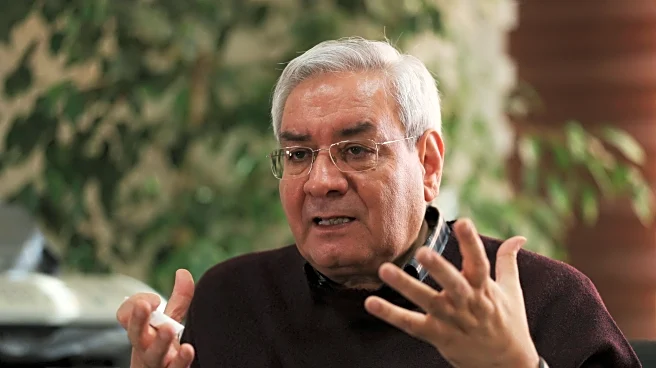What's Happening?
President Donald Trump has faced significant backlash following his decision to pardon Changpeng Zhao, the founder of the cryptocurrency exchange Binance. Zhao, who is known online as CZ, had been convicted of money-laundering violations that facilitated
illegal activities such as drug trafficking and terrorism financing. The pardon has drawn criticism from several quarters, including Joe Lonsdale, a billionaire venture capitalist and co-founder of Palantir, who questioned the advice Trump received in making this decision. Lonsdale expressed his concerns on social media, suggesting that the pardon could be perceived as fraudulent. Additionally, far-right activist Laura Loomer and GOP Senator Thom Tillis have also criticized the pardon, with Tillis labeling it a 'bad signal.' The pardon comes after Binance was barred from operating in the U.S. due to Zhao's conviction, and amid reports of potential financial ties between the Trump family and Binance.
Why It's Important?
The pardon of Changpeng Zhao by President Trump has significant implications for the cryptocurrency industry and U.S. politics. It highlights the ongoing tension between regulatory authorities and the burgeoning crypto sector, which has been under scrutiny for its potential to facilitate illegal activities. The backlash from prominent figures like Joe Lonsdale and Senator Thom Tillis underscores the political risks associated with such pardons, especially when they involve high-profile individuals with criminal convictions. This decision could impact public trust in the administration's handling of financial regulations and its relationship with the cryptocurrency industry. Furthermore, the pardon may influence future legislative efforts aimed at regulating digital currencies, as it raises questions about the influence of financial interests on political decisions.
What's Next?
The controversy surrounding the pardon is likely to prompt further scrutiny of President Trump's decisions and his administration's ties to the cryptocurrency industry. Lawmakers and regulators may push for more stringent oversight of digital currencies and their exchanges to prevent similar situations in the future. Additionally, the pardon could become a focal point in political debates, particularly among those advocating for stricter financial regulations. The response from the Biden administration and other political leaders will be crucial in shaping the future regulatory landscape for cryptocurrencies in the U.S.
Beyond the Headlines
The pardon of Changpeng Zhao raises ethical questions about the use of presidential pardons and the potential for perceived conflicts of interest. It also highlights the challenges of regulating a rapidly evolving industry like cryptocurrency, which operates across international borders and often outside traditional financial systems. The situation underscores the need for clear and consistent regulatory frameworks to ensure that technological advancements do not outpace the ability of governments to protect public interests.















